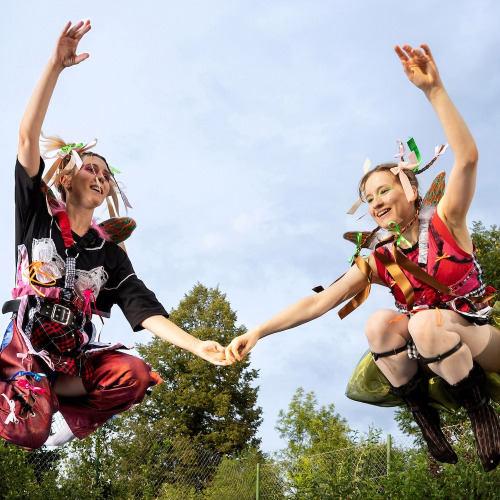
One Point Two (Uno virgola due)
In
her documentary Uno virgola due / One Point Two, Silvia Ferreri deals with what at first seems a somewhat overdone,
and maybe even hackneyed issue of the drastic decrease in the birth rate in
modern societies. Such an issue, one would imagine, would be soberly addressed
by austere politicians in the course of their official duties – rather than by
a young and engaged director known for her standpoints against the stiff
traditions of the establishment. But Miss Ferreri dispels any such misgivings
at the very beginning of this video, when the camera glides over a series of
old photographs, and the narrative explains that the film was inspired by
thoughts of family – more specifically four generations of women, and four
different sets of social norms that defined their lives. Thus, in addition to
the activist dimension, the film instantly gains what is maybe a more
significant and intimate aspect, which – in retrospect – serves to sharpen the
prevailing political sting. It is exactly this which gives the work even more
credibility, as well as a notion of authenticity and urgency that any number of
salon or round table discussions on social issues will most often fail to
achieve.
Another
aspect - one that clears Ferreri’s work of any second thoughts - is the very
milieu of this documentary; namely: its being set in proverbially machismo
Italy, which despite statutory regulations addressing the issues of rights and
equality, women are still primarily considered as ‘mother material’ –- and are
treated as such – while at the same time they are asked to smoothly adapt to
the ever-faster commercial beat of everyday life. By way of interviews with
young mothers, girls who aspire to become same, as well as women who missed
their chance, Ferreri systematically dissects the rotten tentacles of tradition
that slashed Italian birth rates from 4.6 babies per woman to today's average
of 1.2. It goes without saying that this film does not advocate any utilitarian
nationalist thesis of social utility and self-fulfilment attained by way of
having as many children as possible, but rather in a Fukuyama-style illustrates
the consequences of a biological and technological revolution, and leaves it to
the audience to deal with the alarming findings.
The
film saves the best twist to the end, and resolutely reveals its true nature as
a family chronicle and personal diary. In his 1986 video essay Soft and Hard,
(A Soft Conversation between Two Friends on a Hard Subject), co-directed
by Anne-Marie Miéville and Jean-Luc Godard, the old cineast suddenly turns the
camera onto himself, freezes the pictures and mumbles: ˝Some people make
children. I make images. Does this make me any less worthy?˝ This sentence
completely shifts the audiovisual policy discussion – which is the theme of the
essay – from one that considers lucid objective analysis to one of subjective
experience, and, more specifically, experience which might not be appreciated
by everyone, but is nevertheless inarguable. The last scene of One Point Two
is almost identical; Silvia Ferreri - through her own image frozen in a
photograph - whispers that at her age her grandmother had four, her mother
three and her sister two children, whereas she made a film.
Jurij Meden
Organisation: City of Women
In collaboration with: Kinodvor
With the support of: Istituto Italiano di Cultura


